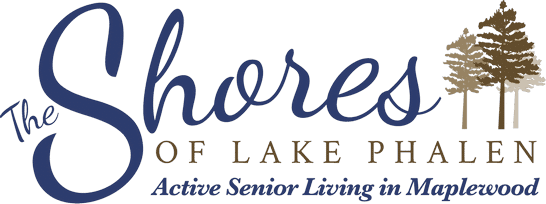There’s a strong tendency to divide a person’s life into three stages: their school days, their working years, and their retirement. While formal educational opportunities might be more readily available during that first phase of life, the ability to seek out knowledge and learn new things doesn’t come with an expiration date. This is extremely fortunate because the benefits of lifelong learning are significant.
The Benefits of Lifelong Learning
Whether it’s by taking a class, working with a mentor, joining a group of like-minded hobbyists, exploring a topic or activity independently, or simply seizing the chance to enjoy cultural activities as they come your way, opportunities to learn something new are everywhere. Why are so many experts actively encouraging adults to take advantage of them? And why is it so important for adults to continue challenging their brains by seeking out new information and acquiring new skills? It’s simple: There are many benefits of lifelong learning.
Increased Confidence
Society doesn’t sit still. With continual technological advances that are constantly reshaping the way that people live and work, change is the only constant. Over time, people who can’t cope with change may find themselves feeling excluded. Lifelong learners are generally better prepared to handle a changing world. As ScienceDirect reports, researchers have noted that adults who make lifelong learning a habit are more comfortable stepping out of their comfort zone to embrace new challenges. Their experience seems to build confidence in not only their ability to tackle new things but also their ability to share what they’ve learned with others.
Expanded Possibilities
A willingness to learn is something smart employers seek out in their employees. Adding new skills and expanding the depth and breadth of your knowledge base can lead to new professional possibilities, better career prospects, and higher compensation packages. What about after you retire? In retirement, the same habits and skills that made you a valuable employee can make you an invaluable volunteer, increasing your chances of finding fulfilling volunteer positions.
Wider Social Connections
There are also social benefits of lifelong learning. Exploring new topics often forges connections with other people, and the process of asking questions or offering answers hones communication and interpersonal skills. Whether the learning is formal or informal, it provides new fuel for conversations, encourages communication with a wider range of people, and provides chances to become a better conversationalist.
Improved Emotional Well-Being
As the United Kingdom’s Government Office for Science reports, a multitude of studies point to a connection between embracing learning as an adult and improved emotional well-being. Researchers credit lifelong learning with helping to foster a sense of purpose, encourage a sense of identity, and enhance coping skills, factors that are thought to contribute to a sense of well-being and linked with increased life satisfaction.
Healthier Bodies
The process of learning teaches critical-thinking and problem-solving skills. When combined with the increased confidence and better communication skills also associated with lifelong learning, it’s no surprise that adults who make this behavior part of their lifestyle are often savvy health care consumers. The ability to interact effectively with health care providers and a willingness to ask questions about what you don’t understand can help you to make informed decisions about your health care, which can make staying healthier easier.
Healthier Minds
It’s often said that the mind is like a muscle. To keep it healthy, you need to exercise it. According to a recent study that examined the way that education early in life and intellectual enrichment later in life affect cognitive function, there’s some truth to that. Higher levels of learning over the course of a lifetime were linked to higher cognitive function, but when it came to cognitive decline, it was intellectual enrichment later in life that mattered most. Regardless of their earliest learning experiences, the participants who embraced opportunities to learn as adults tended to experience less cognitive decline as they aged. What does this mean? It’s convincing evidence that lifelong learning may be able to help preserve cognition and prevent dementia, Alzheimer’s disease, and other forms of cognitive decline.
_____
Are you thinking about taking a class, trying your hand at a new craft, experimenting with a new hobby, or digging deeper into a subject that you’ve always been curious about? Learning something new can be both fun and beneficial. Why wait?
If you are looking for a comfortable and welcoming place to retire in Minnesota, check out our community at The Shores of Lake Phalen. Situated on a wooded setting between two lakes, our apartment-style housing has the atmosphere and elegance of a resort. Plus, our friendly staff members help residents enjoy a carefree lifestyle, without the common worries of running a household. Relax and enjoy the health and safety amenities, fun events, and company of other seniors. Schedule a tour or learn more by calling 651-777-7784.

